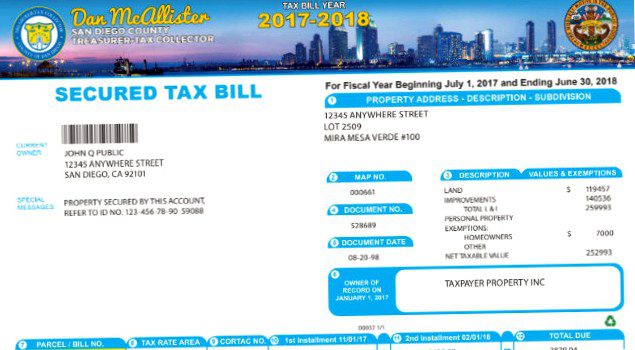Dusseldorf – how a company’s tax payments can affect its liquidity
Companies in Dusseldorf and other cities around the world have to pay taxes on a regular basis. These tax payments can cost a significant portion of a company’s liquidity. Liquidity refers to the ability of a firm to make all payments that are due, including tax payments, salaries, and bills from suppliers.
Businesses have several options to plan and manage their tax payments. It is important to have good tax advisors who are able to minimize tax liabilities and identify tax saving measures. Another important factor is to ensure that businesses make their tax payments on time and correctly to avoid penalties and fines.
Tax payments can have a significant impact on a company’s operations. Poor liquidity management can cause long-term financial problems and even lead to business failure. Therefore, it is important to ensure careful planning and management of tax payments in order to maintain the company’s liquidity and increase its stability.
Introduction
Dusseldorf is a city where many companies are located. Whether small or large, every business must pay taxes. These tax payments can cost a significant portion of a company’s liquidity.

The amount of tax payments depends on the size and success of the company. The more profit is made, the higher are the taxes that have to be paid. In Dusseldorf, there are many successful companies that regularly have to make high tax payments.

Tax payments can have a significant impact on a company’s liquidity. For small businesses in particular, paying taxes can be a major challenge. These companies may feel constrained by high tax payments and have fewer opportunities for investment and growth.
Nevertheless, tax payments are indispensable for financing public services that benefit all citizens of the city. Without taxes, schools, hospitals and other important facilities could not be financed. Therefore, it is important that all companies in Dusseldorf comply with their tax obligations.
Companies in Dusseldorf and the importance of tax payments
Dusseldorf is a city with many businesses and a thriving economy. However, in addition to the many opportunities and possibilities, the topic of tax payments represents a major challenge for entrepreneurs. One of the biggest cost factors for companies is the tax burden.
The amount of taxes paid depends on various factors, such as the size of the company, the turnover and the type of company. Especially in Dusseldorf, where many large companies are located, tax payments can cost a considerable amount of liquidity.
This makes it all the more important for entrepreneurs to deal with the issue of taxes and, if necessary, to seek professional advice. Those who do not have their tax payments under control can quickly run into liquidity problems and, in the worst case, even become insolvent.
- Therefore, companies in Dusseldorf should consider the following aspects:
- Regular review of tax provisions and advance tax payments
- Optimization of the tax strategy through professional advice
- Avoiding tax risks
Overall, it can be said that tax payments play a crucial role in the financial stability of companies in Dusseldorf. Those who neglect the topic of taxes risk not only high costs, but also the existence of their company.
Impact of tax payments on a company’s liquidity in Dusseldorf, Germany
A company’s tax payments can cost a significant portion of its liquidity and thus have a major impact on its business activities. This also applies to companies in Dusseldorf, which can be burdened by high tax burdens.

The higher a company’s tax burden, the lower its liquidity may be. This may result in the company having difficulty covering its running costs or making investments that are necessary for the company’s growth.
To counteract this problem, companies in Dusseldorf should carefully plan their tax payments and optimize their liquidity management strategies. Measures such as the use of tax write-offs or short-term credit lines can serve this purpose.
- Reduce tax burden: Companies in Dusseldorf should examine the extent to which the tax burden can be reduced by taking advantage of tax write-off options or tax breaks.
- Optimizing liquidity management: targeted liquidity management can help mitigate the impact of tax payments on liquidity. Examples include the use of short-term credit lines or the optimization of payment flows.
In conclusion, the tax burden is an important factor that can affect the liquidity of companies in Dusseldorf. Therefore, companies should carefully plan their tax payments and act strategically to optimize their liquidity management.
Saving Taxes: How Dusseldorf businesses can improve their liquidity
Tax payments can be one of the largest expenses for companies and contribute significantly to reducing liquidity. But there are ways to save taxes and improve a company’s financial stability.
One way is to understand and claim the different tax rates and terms. Many businesses in Dusseldorf pay more taxes than necessary because they are not familiar with all aspects of tax law.
- Avoiding double taxation
- Tax incentives and tax breaks
- Tax planning and optimization
Another way to save taxes is to keep effective accounting records. Monitoring the company’s financial activities can ensure that all tax deductions are taken correctly and that no unnecessary expenses are incurred.
Effective tax optimization requires accurate analysis and careful planning. Companies in Dusseldorf can benefit from working with experienced tax experts. By building a tax strategy tailored to individual needs, companies can improve their liquidity and be more successful in the long run.
Conclusion
Not only small businesses, but also large corporations such as those in Dusseldorf have to spend a significant portion of their cash on tax payments.
This can impact all areas of the business, from employee compensation and capital expenditures to operational costs and expansion.
It is therefore important that companies are able to plan and manage their tax exposure. An effective tax strategy can help minimize the impact on liquidity and ensure long-term stability.
- Businesses should consult with qualified tax experts to ensure they are taking full advantage of all relevant tax deductions and options.
- Implementing automated tax solutions and using accounting best practices can help minimize compliance risks and improve the accuracy of tax calculations.
- Companies should also regularly review and adjust their tax strategy to adapt to changing tax laws and regulations.
Through strategic and effective tax planning, companies in Dusseldorf and elsewhere can minimize the impact of tax payments on their liquidity and ensure that they are sustainable and successful in the long term.